About #MEACTION
Scientific & Medical Advisory Board
Our advocacy work is shaped to create a world where people with ME get the equitable treatment, care, and support they deserve. The new Scientific and Medical Advisory Board will keep #MEAction up-to-date on the latest research and care for people with ME and other complex chronic conditions.
Announcing members of the Scientific and Medical Advisory Board:

Ashanti Daniel, RN
Ashanti Daniel, BSN, RN has been an advocate with #MEAction and has shared her story in our events and in the national press, and to congress. Ashanti is a Black woman, a disabled RN, and single mother living with ME in southern California. She speaks powerfully not just to what it is to live with a chronic illness like ME, but what it is like to try to get appropriate care as a Black woman navigating the structural racism of our health care system. As a former healthcare professional and patient advocate she has been educating women of color about ME/CFS and Long COVID, and working to secure recognition and better research and care for patients.
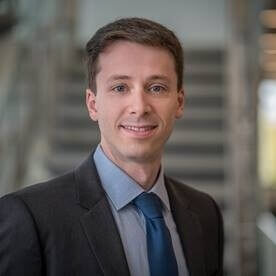
Dr. Brayden Yellman
Brayden P Yellman, MD is a board-certified physician in internal medicine and rheumatology at Bateman Horne Center (BHC). He completed a BS in biology at Washington University in St. Louis, Missouri, and a Doctor of Medicine at University of Texas in Houston. He completed a residency at Exempla Saint Joseph in Denver, CO, and a fellowship in rheumatology at the University of Pennsylvania in Philadelphia. Dr. Yellman joined BHC in January 2019.
Prior to BHC, Dr. Yellman practiced at Intermountain Healthcare diagnosing and managing complex health issues and illnesses in an outpatient clinic and consulting with network providers. He developed and implemented a patient referral triage system to expeditiously identify particularly ill patients and provide them with rapid access with a focus on the underserved population suffering prolonged waiting periods. Dr. Yellman helped create curriculum to educate primary care providers in recognizing, diagnosing, and managing rheumatological diseases.
Since coming to BHC in early 2019, Dr. Yellman has meticulously evaluated complicated new patients, many of whom are in the early stages of ME/CFS or FM, and each requiring 4-6 hours of intense initial evaluation with subsequent follow-up. He has also adopted or consulted with many long-standing BHC patients. Dr. Yellman is an active collaborator on educational projects and develops and presents curriculum to educate medical providers in recognizing, diagnosing, and managing ME/CFS, FM, and comorbid conditions. He provided the intellectual content for a series of six short videos designed to rapidly teach how to recognize ME/CFS as well as how to diagnose and manage both orthostatic intolerance syndromes and post-exertional malaise.
Dr. Yellman is conversant in Spanish and has been a tireless educator, volunteer, and leader in causes for his community and profession. Dr. Yellman has also been recognized for his volunteer work with marrow donor programs. He also has received high ratings by patients for his bedside manner, communication, compassion, and humanism.
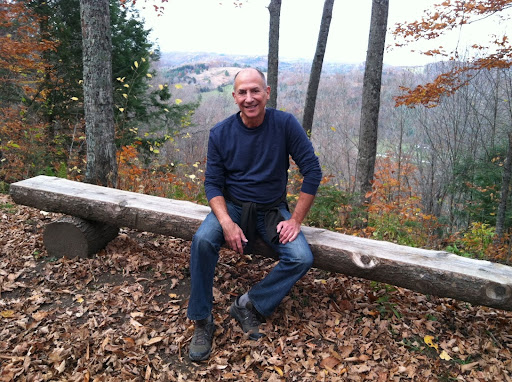
Dr. David Kaufman
After earning a BFA from New York University School of the Arts in Filmmaking, an MA from Teachers College, Columbia University in Education, and his MD from New York Medical College, Dr. Kaufman completed his Internal Medicine Residency training at St. Vincent’s Hospital and Medical Center in New York City, and was Board Certified in Internal Medicine in 1980.
He began his Internal Medicine practice in Greenwich Village in NYC just as the epidemic that came to be known as HIV/AIDS exploded. With St. Vincent’s at the epicenter of this outbreak, he became deeply involved in the care of HIV positive patients and in the research aimed at discovering ways to treat both the opportunistic infections they were dying from and the virus that was causing the destruction of their immune systems.
As HIV/AIDS became a treatable chronic infection, his practice expanded to include more primary care/general internal medicine patients ranging from 18-105 years old. He also became involved in the diagnosis and treatment of a variety of chronic, often difficult to diagnose and manage conditions, such as Lyme disease, Fibromyalgia, Chronic Viral diseases, vitamin and nutrient deficiencies.
During the course of his 32 years in practice in NYC, he has been privileged to provide primary care to multiple family generations and to a widely diverse population of patients. He was responsible for and coordinated the full range of their care, both in the office, in the hospital, and with other consulting physicians.
In addition to his private medical practice, he was the Medical Director for one of the largest HIV Centers in New York State, the Director for HIV Clinical Research at St. Vincent’s, and, for several years, Senior Vice President for Network Development at the 7 hospitals that made up the St. Vincent’s hospital system. As an Attending physician at St. Vincent’s and a teacher of medical students and residents both at the hospital and at the medical school, he received many accolades including being honored by the entire Medical Staff. Over his many years of practice he was consistently cited in the New York Magazine listing of Best Doctors in New York, and has been recognized by the Castle Connolly listing of Top Doctors: New York Metro Area from 1998-2012.
In 2012, he moved to California and joined the Open Medicine Institute, where he was the Medical Director of the Open Medicine Clinic, managing the staff and providing the majority of clinical services to patients. In 2017, he opened a new clinic, the Center for Complex Diseases, with a focus on patients suffering from ME/CFS, Dysautonomia, Autoimmune Diseases, Mast Cell Activation Syndrome, and Chronic Infectious Diseases including Tick borne diseases, Small Intestine Bacterial Overgrowth Syndromes, and viral reactivation illnesses. He is a member of the ME/CFS Collaborative Research Center at the Stanford University Genome Technology Center and Massachusetts General Hospital/Harvard, a founding member of MasterMinds, a listserv focused on complex disease with over 300 members, an active participant in several national clinician networks that focus on ME/CFS, Mast Cell Activation Syndrome, and Autoimmune Disease, and continues to pursue clinical research related to ME/CFS and chronic complex illness.
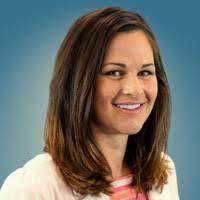
Dr. Jennifer Curtin
Dr. Curtin is an Internal Medicine physician who completed her medical training at UC Irvine and has been treating patients with myalgic encephalomyelitis (ME/CFS) and commonly co-occuring conditions ever since. She has been treating Long COVID patients since March 2020. Dr. Curtin is a member of the ME/CFS Clinician Coalition and co-authored the 2021 official clinical guidance for ME/CFS.
Dr. Curtin has a personal understanding of the difficulties ME/CFS and Long COVID patients experience as she is in remission from ME/CFS, and has joint hypermobility syndrome and POTS.
Dr. Curtin co-founded healthcare startup RTHM (pronounced “rhythm”) to make quality clinical care and development of better testing for Long COVID and ME more integrated and scalable urgently.

Dr. Mike Vanelzakker
Dr. VanElzakker received a master’s degree in behavioral neuroscience at the University of Colorado, working in Dr. Robert Spencer’s neuroendocrinology laboratory, and a PhD in experimental clinical psychology at Tufts University, working in Dr. Lisa Shin’s psychopathology neuroimaging laboratory. His postdoctoral fellowship is at Massachusetts General Hospital/ Harvard Medical School, at the Martinos Center for Biomedical Imaging, in the Division of Neurotherapeutics.
Dr. VanElzakker is interested in uncovering the mechanisms of post-traumatic stress disorder (PTSD), and of myalgic encephalomyelitis – also known as chronic fatigue syndrome (ME/CFS).
His PTSD research uses functional and structural brain imaging, behavioral attention tasks, blood, and genetic data to investigate what makes some individuals vulnerable to PTSD following trauma. He is interested in using non-invasive electroceutical medical devices to enhance safety learning, which may eventually serve as an adjunct to enhance exposure-based therapy for PTSD.
His ME/CFS research uses functional and structural brain imaging to look for abnormal patterns in brain metabolism and inflammation in this patient population. This research focuses on dysfunction at the intersection of the nervous and immune systems and posits that ME/CFS may be what happens when the nervous system detects an exaggerated and ongoing innate immune response. He is interested in using non-invasive electroceutical medical devices to enhance the anti-inflammatory vagus nerve reflex.
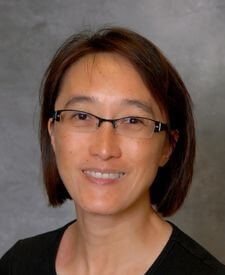
Dr. Ruby Tam
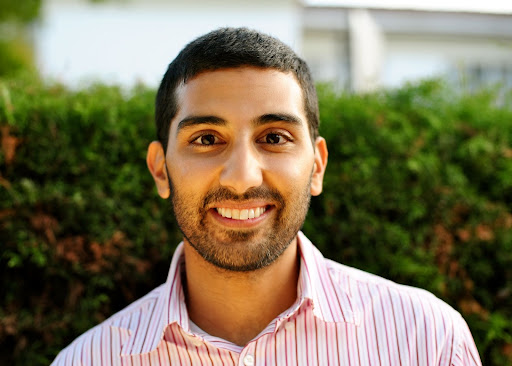
Dr. Sonak Pastakia
Sonak Pastakia, PharmD, MPH, PhD, BCPS, FCCP serves as a Professor of Pharmacy Practice within the Purdue University Center for Health Equity and Innovation. After completing his PharmD at Temple University, he went on to complete his PGY1 and PGY2 (HIV/Infectious Diseases) residency at the University of North Carolina Hospitals, followed by a Master’s in Public Health (MPH) at Harvard University, and a Doctor of Philosophy (PhD) at the University of Warwick.
Upon completion of his MPH, he joined the Purdue University College of Pharmacy to work with the Nobel-Prize nominated Academic Model Providing Access to Healthcare (AMPATH). Within this position, he typically spends 10-11 months per year on site in Kenya. Since joining AMPATH in 2007, he has focused on implementing a wide variety of programs including helping to establish a rural diabetes and chronic disease management program which now serves over 40,000 patients and has screened over 100,000 people, a community-based care delivery program which integrates economic development with care delivery in remote, rural areas, a pharmacy distribution system which provides antiretroviral medications to over 200,000 patients living with HIV at > 500 satellite clinics throughout western Kenya, an anticoagulation monitoring and treatment program for over 4,500 patients, and a supply chain system for essential medications at over 76 sites across a catchment population of over 8 million people. He also works with the largest trade union of women in the world, the Self-Employed Women’s Association (SEWA), which has over 1.9 million low-income members across Southeast Asia. Through his work with SEWA, he is currently collaborating with SEWA’s vast community-based workforce to develop and implement a novel model of healthcare delivery for their many members.
Dr. Pastakia has also worked to advance policy in these domains through his previous completion of the prestigious Jefferson Science Fellowship with the United States Agency for International Development (USAID) Africa Bureau for Sustainable Development in Washington D.C. Since returning to the US at the beginning of the COVID-19 pandemic in late 2019, Dr. Pastakia has worked on adapting and replicating many of these comprehensive responses for underserved populations in Central Indiana. This includes helping to establish improved nutrition programs for primary school students, integrating COVID-19 vaccinations into food pantry services, holding COVID-19 education sessions for underserved communities, and implementing assessments of Social Determinants of Health needs with subsequent allocation of services for low-income patients. Dr. Pastakia has published over 100 peer reviewed articles, three book chapters, raised over $150 million in cash grants and product donations to support population health improvement efforts in Kenya, provided consultative services for several multinational pharmaceutical corporations, serves on the medical advisory board for Direct Relief, and serves as principal investigator or co-investigator on several grants for the National Institutes of Health, United Kingdom Medical Research Council, and USAID.


